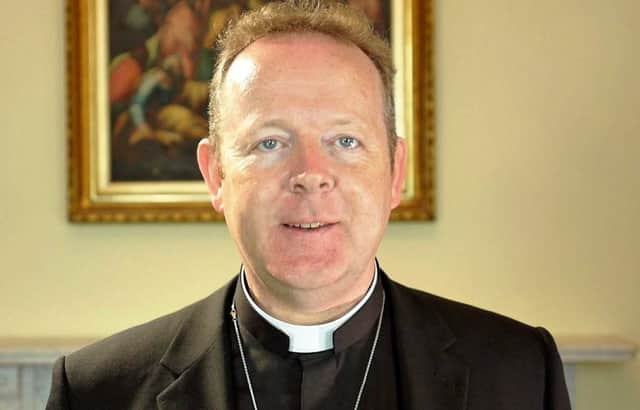‘Our faith makes us want to cry out at extent of criminality and corruption’


Dr Martin was speaking yesterday at the Kennedy Summer School in Co. Wexford on the subject of ‘What is the role of faith in our politics?’
Bringing faith to politics, he said, was not an “optional extra” for a committed Christian.
Advertisement
Hide AdAdvertisement
Hide AdHe added: “We are called to be ‘faith-full’ citizens, bearing witness in the public sphere, to scrutinise ‘the signs of the times’, listening all the while to our informed conscience - which is the voice of God speaking in our hearts – willing us towards the good and warning us against evil.
“Our faith makes us want to cry out at the extent of homelessness, poverty, addictions and violence, criminality and corruption on the streets of Ireland. It moves us to weep that so many of our young people resort to self-harm and taking their own lives. We cannot ignore the plight of the refugee and those who are hungry, persecuted, trafficked and exploited in our world. We rightly feel ashamed and repulsed by the horrific revelations of child abuse and other shameful episodes where the reputation of the Church was put before the compassionate call of the Gospel to protect the vulnerable and reach out to the marginalised.
“But faith also confronts us to examine our own lives and attitudes. Amidst a world of unbridled consumption and the maximisation of profit, faith challenges us towards a more ‘responsible simplicity of life’. Hearing the ‘cry of the poor’ and the ‘cry of the earth’, it moves our hearts to want to do something to protect the very future of our planet, our common home. Faith allows us to see more clearly that all these issues are connected.”
Dr Martin insisted faith was “no mere private affair”.
“It entails a social duty, to help protect ‘the future of humanity’,” he said.
Advertisement
Hide AdAdvertisement
Hide AdCatholic politicians, he said, had an important, but very challenging, responsibility nowadays to support laws which “uphold the dignity of every human person made in God’s image - even when this is not the popular opinion to hold.”
He also welcomed Taoiseach Leo Varadkar’s recent calls for the building of a new relationship between Church and State.
“The Church and the political community, whilst autonomous and independent of each other, would do well in these troubled times to dialogue and cooperate in the service of Ireland and the protection of humanity,” he said.